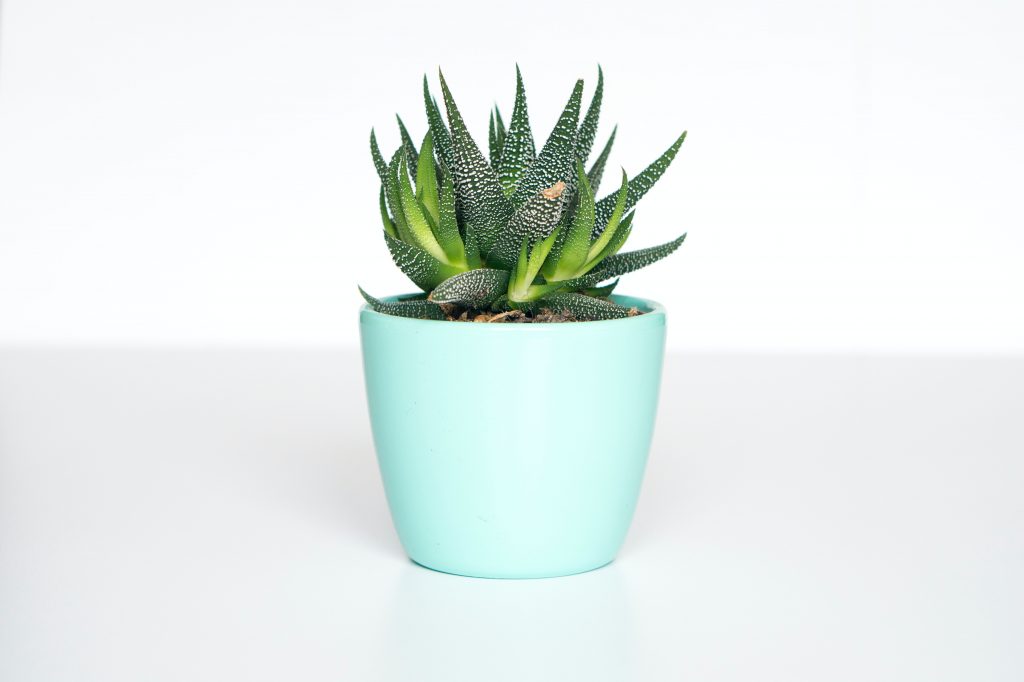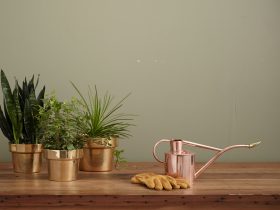
Most of us feel that plants are good to have around the home. But let’s dive into the actual science and delve into the facts and health benefits of having plants at home.
Plants can reduce stress
Studies have shown that the simple act of taking care of our plants helps us wind down. This is because it diverts our attention from the troublesome issues of the day. Instead, our attention is focused on something else—something beautiful, alive, and calming. They can also give us a much-needed break from technology. Tending after our plants forces us into a mindful act. We have to be very present and aware of our plant and any issues it’s facing e.g yellowing leaves, any pests, or a dreaded fungal infection.
Having even just one plant at home can have amazing impacts on our mental health and overall wellbeing
All these things require our immediate attention to keep the plant alive. And obviously, it is impossible to do this while scrolling mindlessly through our Instagram feed. Studies show that being able to see the greenery of plants around you has a calming effect. This leads to lower blood pressure and consequently makes you feel more relaxed and ultimately happier.
How plants reduce stress
Perhaps it’s because when someone is in awe of a stunning vista, they are less likely to be anxious or depressed. But the real answer might just be much simpler: studies show that spending time in nature can help plants grow better and stronger than plants grown in less verdant environments. It seems that stress-reducing chemicals called phytochemicals, which help plants grow strong in herbivore-rich terrains, also have stress-reducing properties for humans.
Phytochemicals can reduce the levels of cortisol, a stress hormone that is linked to memory loss and depression. They can also increase the level of dopamine, a chemical in our brains thought to be linked to happiness and reward-seeking behaviour. For humans, that means less anxiety and more pleasure from everyday moments.
Plants can help with cognitive ability
College students who performed demanding tasks in an office with greenery had a longer attention span than those without plants. This was shown by a study published in the Journal of Environmental Psychology.
The research showed plants in the workspace environment significantly increased workplace satisfaction, self-reported levels of concentration, and perceived air quality. Simply having a natural, green backdrop in your working environment has a restorative effect on the mind. Your “attention muscles” can rest, recharge, and rejuvenate. This in turn helps you stay more focused. These findings build on a body of research based on Attention Restoration Theory.

How do plants benefit your ability to think and function?
Scientists have found that houseplants improve cognitive ability and have also found the mechanism for this rather surprising outcome. In a study, participants were put either in a room with plants or without plants (a control group). Those who came from the plant-filled rooms performed far better on certain tests measuring their cognitive abilities as well as moods than the control group. It was found that levels of nitric oxide were higher in the room with plants as well as some other beneficial chemicals such as phytohormones, all of which have a positive effect on cognitive performance and mood.
Plants promote mental well being
Tending to our plants has proven to keep our minds active. It challenges us with specific brain functions that improve our motor skills including problem-solving, sensory awareness, and learning. The brain focuses attention effortlessly when it’s looking after a living thing; it is captured by fascination and nurturing. This stimulates the brain in a restorative way, providing a quiet internal space for us to detach from outside noise.
Plants promote healing, speeds up recovery
Researchers at Kansas State University found that patients with plants in their rooms required less pain medication. They also had lower blood pressure and heart rate. Further, they felt less anxiety and fatigue when recovering from surgery than patients without greenery in their rooms.
Studies also suggest that plants especially benefit dementia and Alzheimer’s patients. These benefits include improved motor skills, problem-solving, sensory awareness, and improved attention. Horticultural therapy embraces the basics, using nature and gardening-like activities, facilitated by a trained therapist, to help patients feel better. Horticultural therapists also work in addiction recovery centres, prisons, and wilderness therapy programs for teenagers—as well as hospitals.
How do plants promote healing and recovery?
The main reasons for this? While many assume it is the presence of oxygen that provides so much benefit to patients with plant life in their rooms, it actually is something else: Filtered air. In fact, the benefits of plants in an ICU room are due to the removal of Volatile Organic Compounds (VOCs) and irritants that pollute our indoor air.
Plants can reduce stress as well as anxiety, both of which are very common for individuals who have been admitted into a hospital or ICU. In fact, in some studies, the presence of plants can lower stress and anxiety by up to 20%. By working to reduce stress levels in a hospital or ICU room, plants can actually help your body fight infection and heal faster after surgery or other procedure. In one study, patients who were admitted with severe burn injuries healed an average of 27% more quickly when plants were present in their room.
The healing benefits of plants
A reduction in stress is directly related to an increase in healing. When you are stressed your immune response is increased and therefore your body has a harder time fighting off infection or inflammation. Your body also releases a certain hormone when under stress called cortisol, which breaks down muscle tissue and effectively slows the healing process.
Better breathing
Research shows that indoor plants like peace lilies can help rid the air of common toxins and indoor pollutants. A study found that the bromeliad plant removed more than 80 per cent of six volatile organic compounds (out of eight studied). And the dracaena plant removed 94 per cent of acetone (the pungent compound in many nail polish removers). For more air purification methods, check out our blogs on the best air purifiers for your health,
Scented plants have health benefits too. The smell of flowers like jasmine and lavender have been shown to lower anxiety and stress. These can also promote a good night’s sleep.
For more information on plants, check out our blog on how nature can heal the mind, and how plants can help with mild depression.
For some added health benefits of having indoor houseplants, check out this video from a holistic nutritionist’s youtube channel—Joyous health.



















4 Comments